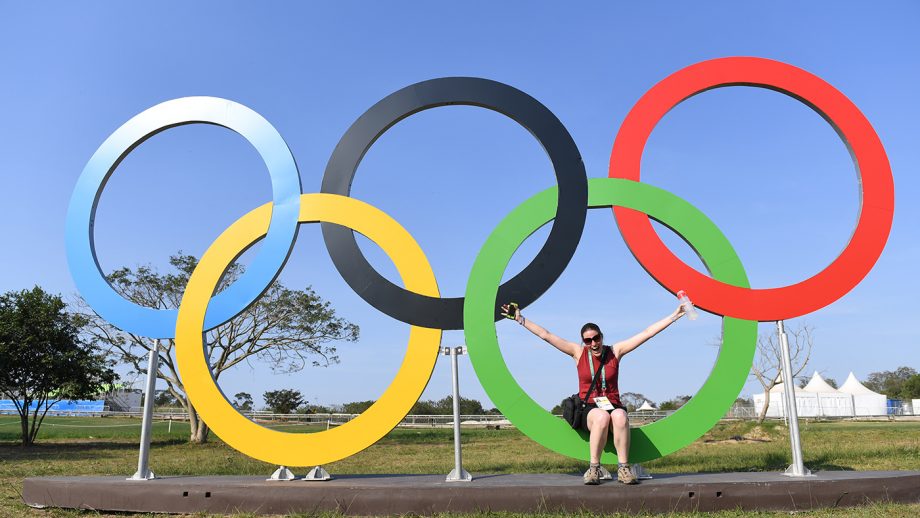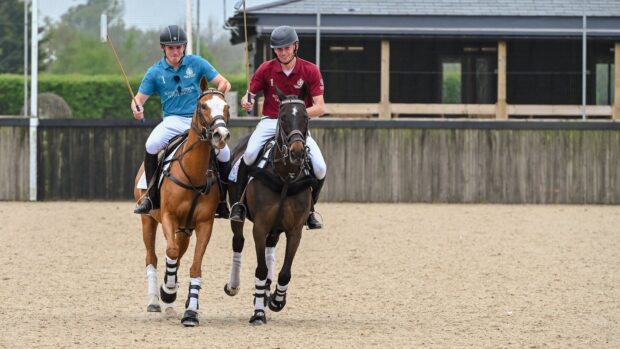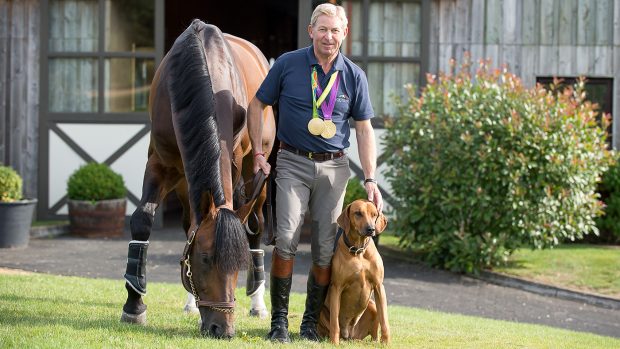OPINION
The news yesterday that Japanese tennis player Naomi Osaka will not take part in any press conferences during the French Open brings up a bunch of issues around athletes’ obligations to the media – and vice versa.
Firstly, let me stress that we are incredibly lucky with our athletes in horse sport. I can pretty much count on my two hands the number of times I have known a rider refuse to speak to the press in over 17 years as an equestrian journalist.
I’m not aware of any formal sanctions in place for riders refusing to do press work at major events, whereas Naomi Osaka will apparently face fines of around £14,000 per press conference that she misses. But it is certainly understood that a certain amount of engaging with the media is part of riding at a decent level and for the most part riders do this with good grace and are generous with their time.
The Naomi Osaka affair: the economics of sport
I’ve never been in a tennis press conference, but reading some of the coverage of the Naomi Osaka affair, it’s clear that the atmosphere in tennis press conferences might sometimes be more combative than we are used to in equestrian sport. It’s also a different set-up when in every case there is a clear winner and loser, whereas horse sport is not a one-on-one competition in that way.
I think the media have a duty to be respectful and sensitive to athletes. For the most part, this is what I have seen while doing my job. Occasionally I’ve seen journalists ask questions I consider insensitive, but mostly out of lack of knowledge, rather than any deliberate intent. Sometimes mainstream journalists ask questions that surprise me, but they lead to good material.
I also believe the athletes have a duty to do media work – and should understand that the economics of sport depend on it.
Tennis and equestrianism are worlds apart in terms of the money involved and the finances of top athletes, but among an athletes’ possible income streams are prize money and sponsorship. The events they compete at are likely to rely on sponsorship, footfall of spectators and TV rights in order to run. Ultimately, sport depends on public interest to make the numbers add up – an event cannot draw a crowd or attract sponsorship or charge for TV rights if no one is interested in it. No one will sponsor an athlete with no fan base. Riders may rely more on riding for owners, teaching or dealing horses than prize money and sponsorship, but profile helps in these things too.
Social media allows athletes to talk directly to their fans these days, but media coverage can still broaden the number of people who know about an athlete and follow their career. Media coverage without quotes, without context, without personality is boring – imagine if, at the extreme end, no athlete ever spoke to the press. Can you imagine watching sport on television with no interviews, reading reports that describe what happened with no input from the athletes? Even coverage that does not involve direct quotes is informed and enlivened by journalists and commentators having spoken to athletes during that event and in the past.
Ultimately, the media and athletes depend on each other. There will be spiky moments, of course, and a journalist who never asks an uncomfortable question isn’t a good journalist – and an athlete is entitled to give short answers, occasionally not comment or shut down a line of questioning. But in the end, we all have a job to do. But the reason that the fines tennis players face are “spare change” to the top players, according to The Times, is that their sport has allowed them to make a good living… and that wouldn’t happen without good press coverage.
Article continues below…
You might also be interested in:

Tokyo reporter’s blog: my blood ran cold – what if I have to leave midway through the Olympic cross-country?
As the Tokyo 2020 Playbooks are released, H&H’s Pippa Roome blogs about the reality of going to the rescheduled Olympics

Pippa Roome: will fans, riders and journalists be baffled by substitutions at the Olympics? *H&H Plus*

Subscribe to Horse & Hound magazine today – and enjoy unlimited website access all year round
Timing is also mentioned in the Naomi Osaka coverage. Yes, athletes should have time to compose themselves after a bad performance before facing the press. There have been situations at major events where riders need to look after their horse or perhaps ride a highly strung mount back to the stables before they come to the mixed zone – we get it, that’s no problem. But we live in a world of instant news and we all have press deadlines to meet and web stories to publish – there’s only so long we can wait.
Mental health is cited as the reason for Naomi Osaka’s decision. I don’t know the background to that or the details of her specific case, but this has brought something I’ve been thinking about for a while into focus.
Let me be clear here. It is good that increasing attention is paid to everyone’s mental health, whether they are an athlete, a journalist or neither. It is great news that those with mental health struggles can get help and people feel comfortable being more open if everything is not ok. The consequences when someone’s mental health spirals severely downhill are dreadful and tragic, and we must all strive to make a world where these incidents are reduced or eliminated altogether.
However, “mental health” cannot become a “get out of jail free card” for anything someone doesn’t fancy doing. We all have parts of our jobs we don’t like, but we can’t say it’s bad for our mental health and just not do it. But I worry that we are moving towards a world where when someone cites “mental health” as their reason for doing or not doing something, it feels uncomfortable to challenge that, to discuss it or try to reach a compromise. If you say mental health, the barriers come down and no more questions can be asked. That may in turn impact on someone else’s mental health.
As a one-off incident, Naomi Osaka’s decision will drive its own story, which is slightly ironic when the story is that she won’t engage with the media. But it would be worrying if she set a precedent which other athletes followed – their sports cannot afford them a living without media coverage and good media coverage cannot be generated without their involvement.
What do you think? Write to us at hhletters@futurenet.com, including your name and nearest town, for the chance to feature on the letters page in a future issue of H&H magazine.
Horse & Hound magazine, out every Thursday, is packed with all the latest news and reports, as well as interviews, specials, nostalgia, vet and training advice. Find out more about getting the magazine delivered to your door every week.






